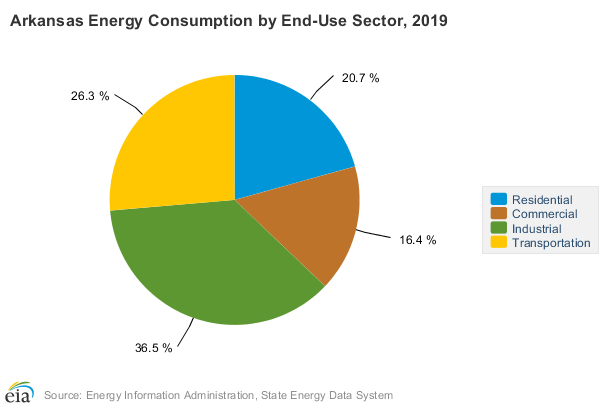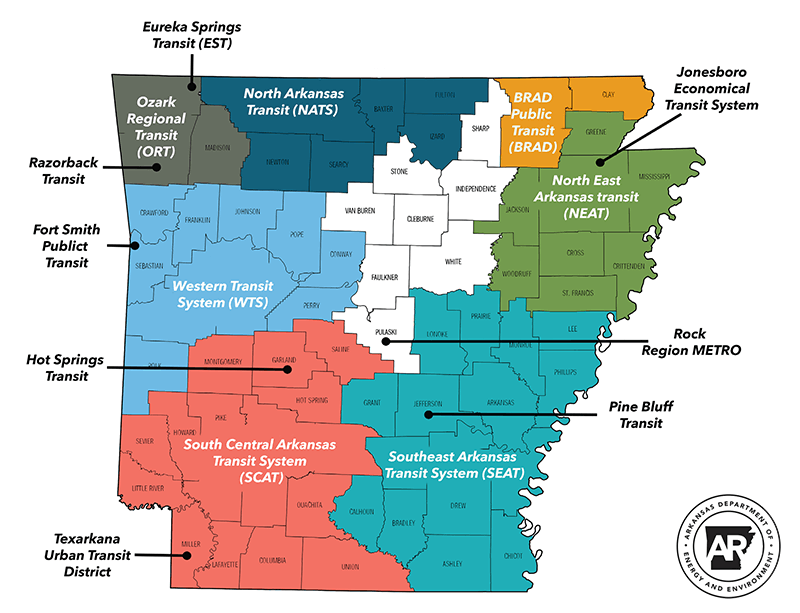Alternative Fuels Tax
Excise taxes on alternative fuels are imposed on a gasoline gallon equivalent basis. The tax rate for each type of alternative fuel is based on the number of motor vehicles licensed in the state that use each fuel type. (Reference Arkansas Code 26-62-201)
Alternative Fuel Vehicle (AFV) Conversion
Any individual or company who converts an AFV to operate on an alternative fuel must report the conversion to the Director of the Department of Finance and Administration within 10 days of the conversion. An owner or operator who fails to report such a conversion may be subject to a penalty. (Reference Arkansas Code 26-62-214)
(From DOE’s Alternative Fuels & Advanced Vehicles Data Center)
Biofuels Use Requirement
The Arkansas Alternative Fuels Development Act establishes an annual goal of 50 million gallons of alternative fuels produced at production facilities in the state by October 6, 2008. Furthermore, by January 1, 2009, all diesel-powered motor vehicles, light trucks, and equipment owned or leased by a state agency must be operated using diesel fuel that contains a minimum of 2% biofuels by volume. Waivers to the 2% biofuels standards for state agency vehicles may be granted if the fuel is not available in certain geographic area or if the fuel is at least $0.15 cents more expensive per gallon then the petroleum equivalent. The Arkansas Bureau of Standards will work to ensure fuel quality standards. (Reference Senate Bill 237, 2007)
Liquefied Natural Gas (LNG) and Liquefied Petroleum Gas (LPG) User Permit
Any user of LNG or LPG as an alternative fuel in vehicles must apply for and obtain a liquefied gas special fuel user's permit for each vehicle owned and operating on LNG or LPG. Applications must be submitted to the Director of the Arkansas Department of Finance and Administration. (Reference Arkansas Code 26-56-304)
Liquefied Petroleum Gas (LPG) Tax
LPG as a motor fuel is taxed on a per vehicle basis through a yearly flat-fee special fuel user's permit. The amount of the fee is based on the vehicle's Gross Vehicle Weight Rating. (Reference Arkansas Code 26-56-301 and 26-56-304)
Natural Gas Metering
No user, including an alternative fuel supplier of natural gas fuels, who utilizes natural gas for residential or other tax-free purposes, is permitted to use natural gas fuels in motor vehicles unless the natural gas fuels are removed through a separate meter installed by the alternative fuels supplier for such purposes. (Reference Arkansas Code 26-62-203)







